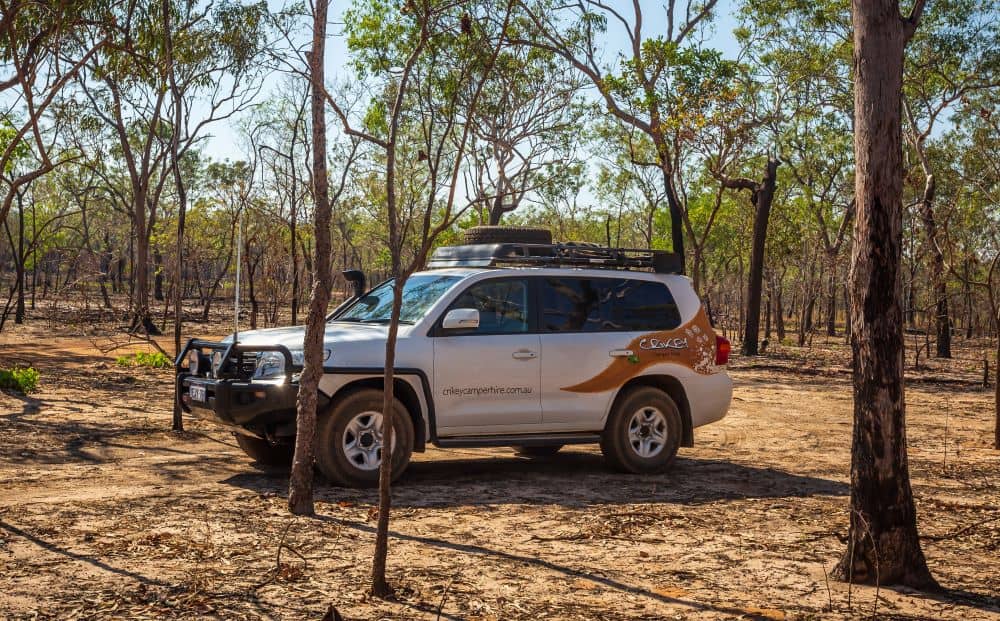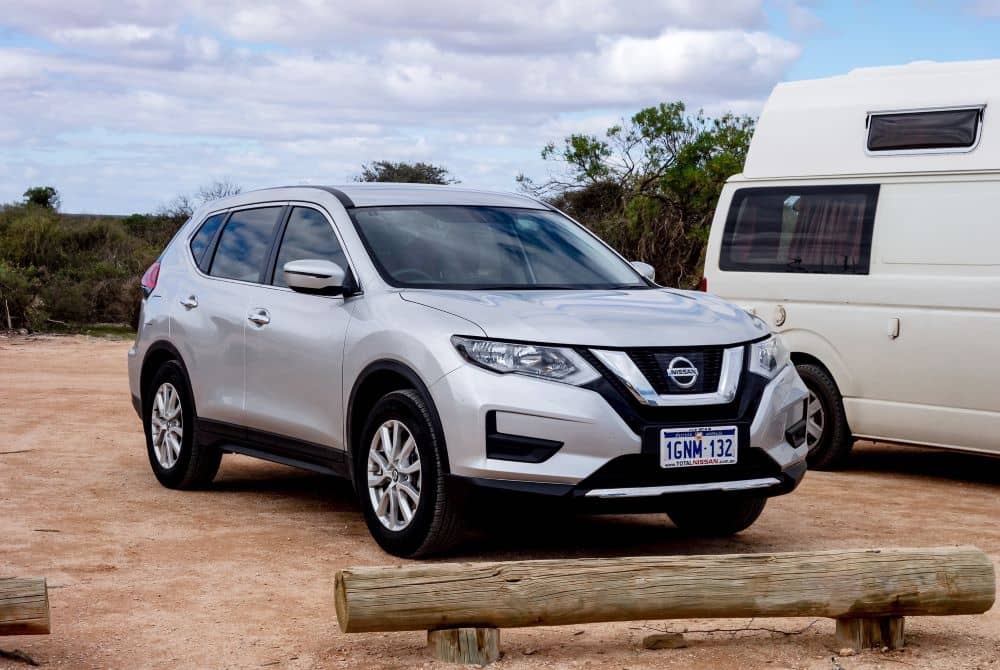If you’re in the market for a new vehicle, you may find yourself asking what the difference is between AWD v 4WD vehicles. From a mechanical standpoint, they’re fairly similar. Despite this, you won’t get the same driving experience from one as from the other. Especially if you plan to go off-roading.
You must know what you’re getting into before you make your purchase. That’s why today, we’re going to go over the key differences between 4WD and AWD as well as the pros and cons of each. Once we’re done, you’ll be better prepared to decide which is the one for you.
What’s the Difference Between AWD and 4WD?
All-Wheel-Drive is the term for vehicles that maximize road traction. This is most often considered more of a safety feature than an off-roading feature. The system will only engage when the vehicle encounters a loss in traction. This is usually due to rainy or icy road conditions. When the system isn’t engaged you’ll only be able to use one set of wheels, not both. This is rather limiting as you have no control over when the AWD feature engages.
Four-Wheel-Drive refers to vehicles that allow the power and torque to be split between the front and rear axles. That gives you more control over the vehicle, making it the favourite choice among those who enjoy driving off-road. Some models keep the 4WD turned on at all times, while others require you to stop and manually switch modes. The downside is that most 4WDs don’t come with high and low-range gearing. If you’re planning to drive in extreme conditions, this could play a factor.
That’s a lot of information, but it essentially breaks down to these points:
- AWD vehicles are always in AWD mode but don’t give you the option to choose when all wheels are being used.
- 4WD vehicles let you turn the system off and on depending on road conditions.
- 4WDs are more suited to off-roading while AWDs focus more on road safety.
- When looking at AWD v 4WD consider where you’ll be driving the vehicle most.
Now that you know a little more about the difference between AWD and 4WD, let’s talk safety.
Are AWD/4WD Vehicles Safer Than 2WD Models?
When it comes to safety, it can be hard to make definitive statements. The differences you’ll find in safety often come down to road conditions and the skill of the driver. The industry holds all vehicles to the same safety standards. One of which is that all vehicles must have electronic stability control. This stabilizes the car when it unintentionally shifts direction.
While you can’t necessarily say that 4WDs and AWDs are safer, they do provide more safety features. Both types of vehicles outperform 2WDs when it comes to accelerating from a standstill position. That’s because they provide more traction and ensure the pressure is evenly distributed between all of the wheels. This feature is great for slippery conditions but that’s not all you can use it for.
The increased traction also provides more stability for off-roading as well as towing situations. If you need to take a boat through sand, for example, a 4WD or AWD is a better bet than a 2WD.
What You Should Know About 4WD
4WDs come in two different categories: full-time 4WD and part-time 4WD. A full-time 4WD offers the maximum amount of traction under all conditions and can’t be turned off. A part-time 4WD has to switch between 2WD and 4WD. This can be either automatic or manual, depending on the vehicle.
To help make the decision process easier, let’s go over the pros and cons of the 4WD.
Pros
- A 4WD offers more traction in dangerous driving conditions, such as snow and ice.
- 4WDs tend to be heavier vehicles, which means that they have fewer issues with gripping the road.
- 4WDs are better for off-roading or driving in extreme conditions.
- You can pull heavy loads at a slow speed.
- 4WDs do well with steep inclines, such as mountains or hills.
Cons
- The main disadvantage is cost. 4WDs are expensive, consume lots of fuel, and need lots of maintenance.
- The heaviness of the vehicle means you need additional room to brake effectively.
- A 4WD can lead to excessive confidence. You may be tempted to take on stunts you wouldn’t otherwise perform.
What You Should Know About AWD
An AWD vehicle provides power to all four wheels rather than just to the front or back. When driving, the system focuses on one set or the other unless slipping begins to occur. When slipping begins, power is sent to all wheels at once to help stop the slide. This anti-slip technology is why AWDs are so popular in areas that get lots of snow and ice.
Let’s go over some of the common pros and cons of AWDs.
Pros
- AWDs are great at taking corners, due to their improved grip on the road.
- AWDs do well in slick conditions. The chances of being involved in a slide are dramatically reduced.
- AWDs are less likely to burn rubber.
- AWDs have a great resale value, so you can use that to your advantage when it’s time to sell or trade-in. If you’re looking to sell your AWD in Perth, We Buy Your Car WA is one of Perth’s premier car buying service.
- The system does the work for you, there’s no need to switch into AWD manually.
Cons
- AWDs are complex vehicles that often require professional maintenance to maintain.
- AWDs aren’t great on fuel economy, so you may find yourself at the pump more often.
- Contrary to what many believe, AWD vehicles don’t generally have better braking systems.
AWD and 4WD vehicles are both great options, but it’s important to consider what will work best for you. Now that you know more about the difference between AWD and 4WD, take some time to compare their qualities. Think about what you want before you commit.


